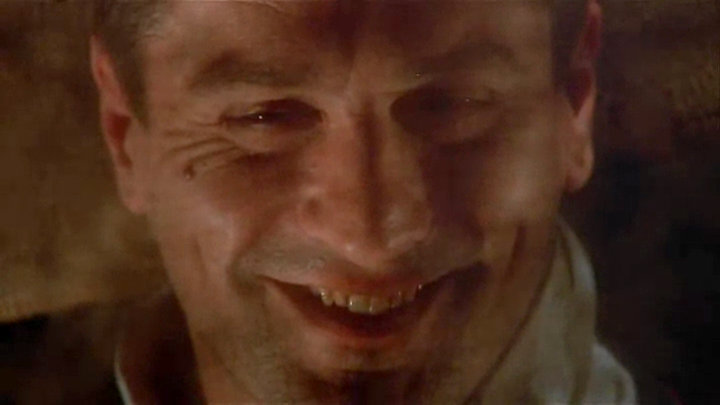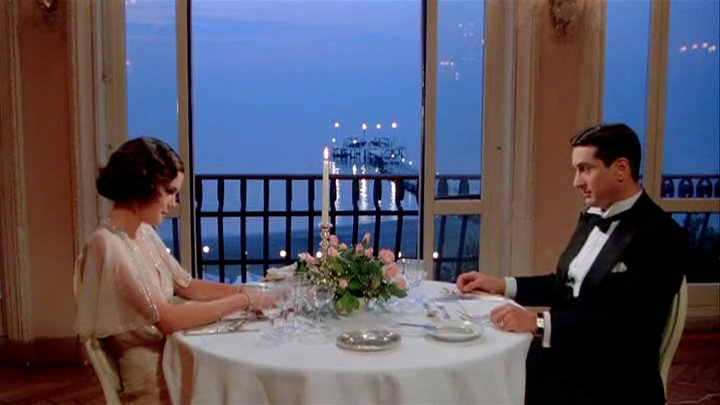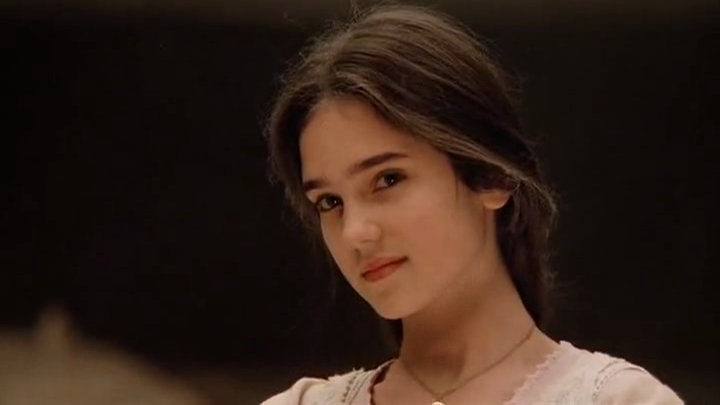
Monday, September 17, 2012
Opium Den
This is the third (and last) clip from Once Upon a Time in America. I wish I could find the original uncut version of this movie that is 269 minutes in length. The version I have is only 220 minutes, 9 minutes shorter than the version presented in the 1984 Cannes Film Festival. I don't know what I am missing, but I certainly do not agree with many, if not all the "professional" movie reviewers who analyzed this movie in many aspects. Incidentally, the majority agreed that this Sergio Leon's last movie is one of the very best movie made.
In this clip, which is at the very end of the movie, you see a "Noodles" De Niro sinking into the lowest point of his life, worse than when he was in prison. He finds solace in the bowels of opium dens. The movie ends with a focus on a grin on his face that opened all kinds of different interpretations of what director Leon was trying to convey.
All the reviews I read concluded that Noodles went into opium because he felt immense remorse after his betrayal of his friends and caused their deaths. I say the critics are all wrong. He sunk to that depth because of what he did to Deborah at the end of my previous clip that I chose not to include.
This clip now made me determined to look into movie scenes depicting opium smoking. There are plenty of movies for that, but the best scenes I remember are from Indochine and The Last Emperor. These clips will come next.


Wednesday, September 12, 2012
Broken Hearted
Noodles, out of prison and resumed his mobster life with his pal Max (played by James Woods) now is flying high. He cannot forget his love for Deborah and finally was able to get her to accept to a night out, filmed at the fabulous hotel Excelsior in Venice, Italy. The film's leitmotif "Amapola" returns in this scene. You heard this song in the previous blog. That was a jazzy version played on the gramophone while this is a string version. Amapola was a favorite song for many opera singers, and Leone adopted it in his movie after hearing it in the film Carnal Knowledge.
In case you do not know this movie, Deborah may have loved Noodles but she did not approve of Noodles' relationship with the mob. With that background, you may better understand her attitude during the dinner date. Her decision to leave the next morning did not go down well with Noodles and that lead to a despicable scene in the movie that marked Noodles' life forever. With that background, you will appreciate Noodles' behavior in my upcoming third and last clip of this great movie. He was devastated and sought to forget.
You ought to rent or buy this movie to watch it multiple times... Stay tuned for the next clip...
In case you do not know this movie, Deborah may have loved Noodles but she did not approve of Noodles' relationship with the mob. With that background, you may better understand her attitude during the dinner date. Her decision to leave the next morning did not go down well with Noodles and that lead to a despicable scene in the movie that marked Noodles' life forever. With that background, you will appreciate Noodles' behavior in my upcoming third and last clip of this great movie. He was devastated and sought to forget.
You ought to rent or buy this movie to watch it multiple times... Stay tuned for the next clip...

Thursday, September 06, 2012
Amapola
It has been a while since I post a movie clip here. It's simply because it is not so easy to find a new movie worth spending the time talking about. But... you can, if you try hard, find something to say about some older movies. Here is a clip from a very famous movie by a great Italian director: Sergio Leone; and the film is "Once Upon a Time in America." The movie is billed as a gangsters/mobsters/organized crime genre, but what I will show you is a love that is quite beautiful... and sad at the same time.
Here is a first of three clips: Amapola. Once Upon a Time in America is a 1984 Italian epic crime film co-written and directed by Sergio Leone and starring Robert De Niro and James Woods. The film is a story adapted from the novel "The Hoods," written by Harry Grey. The original version by the director was 269 minutes (4 hours and 29 minutes) long, but shortened to director Leone's immense grief, in the US to a mere 139 minutes (2 hours and 19 minutes.) That is the version I own, and I am still unable to find the original version that may still exist in Europe some place.
Robert De Niro played the main role of David "Noodles" Aaronson. Noodles first (and only) love was Deborah Gelly when she was a young girl, strong willed and determined to become a big star in the entertainment world. In this clip, Noodles was released after a 12 year prison term, saw a photo of Deborah and had a flash back to his unforgettable encounter with Deborah. Amapola is the main leitmotif of this movie, anchoring the doomed love of Noodles to Deborah. Amapola "(Pretty Little Poppy)" is a 1924 song by Cádiz-born composer José María Lacalle García (later Joseph LaCalle), with Spanish lyrics. After the composer died in 1937, English language lyrics were written by Albert Gamse. The music in this movie, by Ennio Morricone, is reminiscent of his work in the movie "Cinema Paradiso," another great Italian movie by director Giuseppe Tornatore.
Come back here soon to see my second (of three) clip of this movie coming up next when the leitmotif of this song returns in the only romantic but ill fated courtship of Noodles and Deborah.
Here is a first of three clips: Amapola. Once Upon a Time in America is a 1984 Italian epic crime film co-written and directed by Sergio Leone and starring Robert De Niro and James Woods. The film is a story adapted from the novel "The Hoods," written by Harry Grey. The original version by the director was 269 minutes (4 hours and 29 minutes) long, but shortened to director Leone's immense grief, in the US to a mere 139 minutes (2 hours and 19 minutes.) That is the version I own, and I am still unable to find the original version that may still exist in Europe some place.
Robert De Niro played the main role of David "Noodles" Aaronson. Noodles first (and only) love was Deborah Gelly when she was a young girl, strong willed and determined to become a big star in the entertainment world. In this clip, Noodles was released after a 12 year prison term, saw a photo of Deborah and had a flash back to his unforgettable encounter with Deborah. Amapola is the main leitmotif of this movie, anchoring the doomed love of Noodles to Deborah. Amapola "(Pretty Little Poppy)" is a 1924 song by Cádiz-born composer José María Lacalle García (later Joseph LaCalle), with Spanish lyrics. After the composer died in 1937, English language lyrics were written by Albert Gamse. The music in this movie, by Ennio Morricone, is reminiscent of his work in the movie "Cinema Paradiso," another great Italian movie by director Giuseppe Tornatore.
Come back here soon to see my second (of three) clip of this movie coming up next when the leitmotif of this song returns in the only romantic but ill fated courtship of Noodles and Deborah.

Subscribe to:
Posts (Atom)


